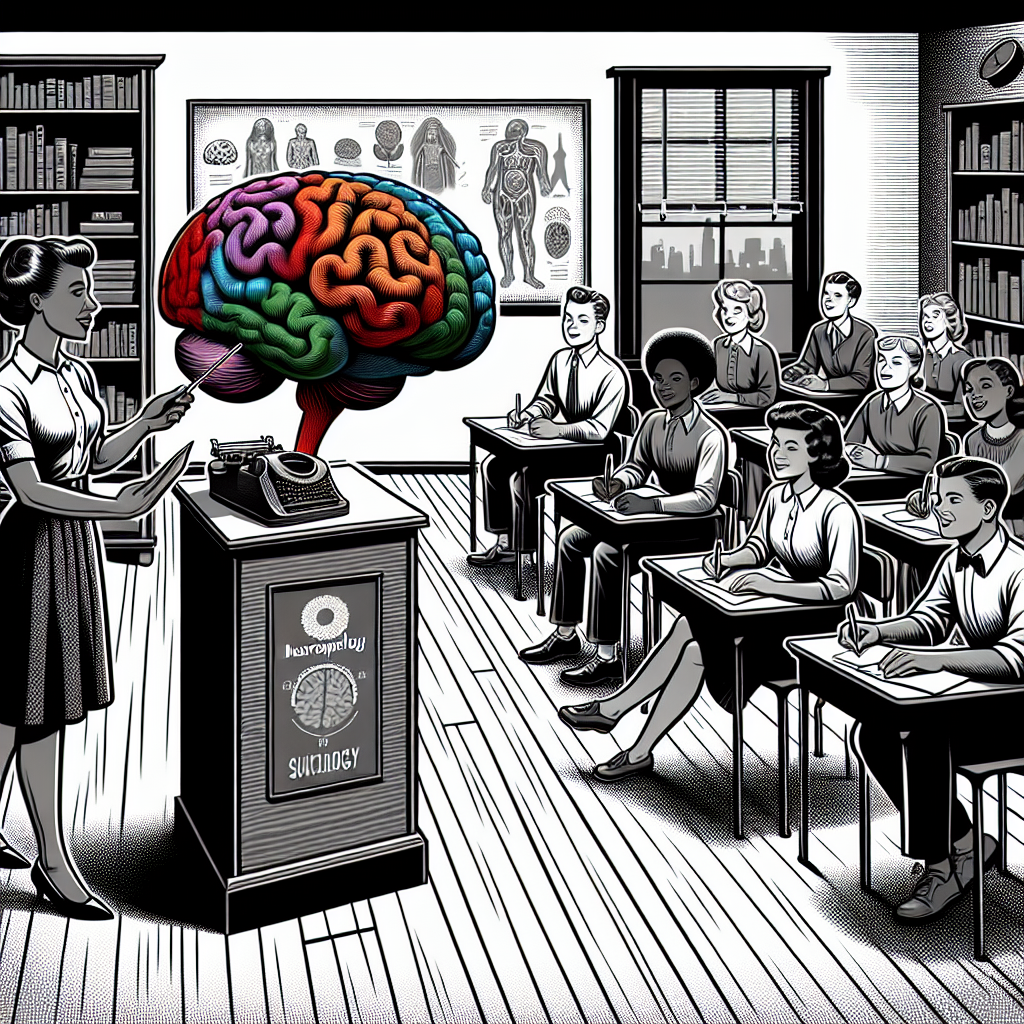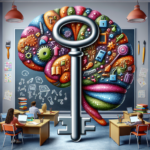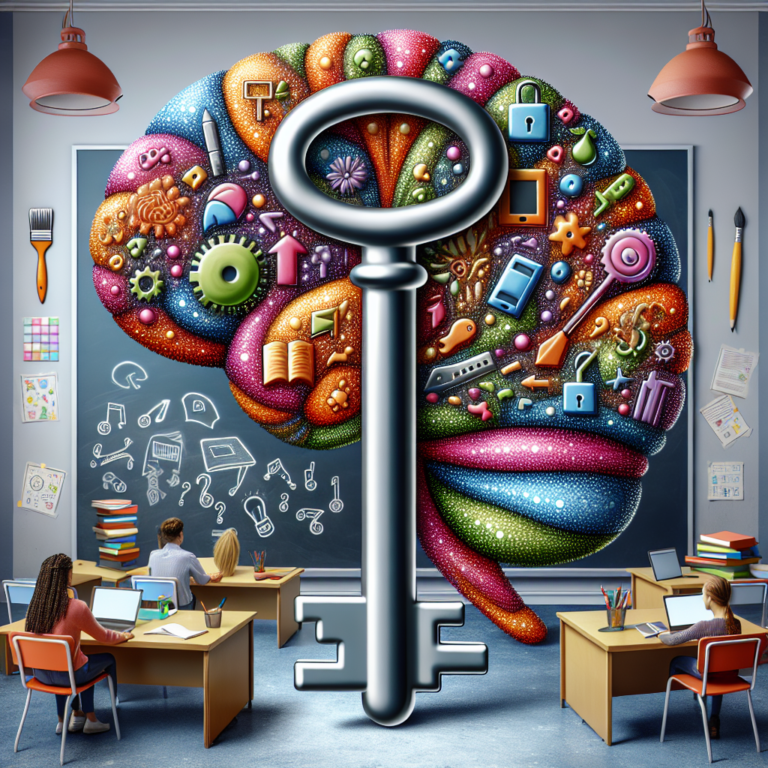
Introduction
Imagine a classroom where every student engages with learning material in a way that resonates uniquely with their brain. A place where educators understand the intricate workings of the mind—where lessons are tailored based on how students think, process, and retain information. This is not just a dreamy scenario; it is a tangible reality grounded in the field of neuropsychology in education. As educational paradigms evolve, integrating insights from brain science promises to enhance the learning experience significantly. Join us in unpacking how neuropsychology influences educational practices and offers pathways to optimize learning.
The Basics of Neuropsychology in Education
Understanding Neuropsychology
Neuropsychology is the scientific study of the relationship between brain function and behavior. It bridges psychology and neuroscience, offering insights into how cognitive processes such as memory, attention, and problem-solving are linked to specific brain functions. When applied to education, neuropsychology can inform teaching strategies and learning environments in ways that consider how the brain operates best.
The Intersection of Brain Science and Learning
In recent decades, researchers have made significant progress in understanding brain development and neuroplasticity—the brain’s ability to reorganize itself by forming new connections throughout life. This evolving knowledge holds profound implications for education. Insight into brain processes helps educators craft lessons that align with how students’ brains develop and learn, enhancing cognitive engagement, retention, and application of knowledge.
Practical Applications of Neuropsychology in the Classroom
Tailoring Teaching Methods
One of the primary tenets of neuropsychology in education is differentiating teaching methods to match cognitive styles. Studies show that students have various learning modalities—visual, auditory, kinesthetic, and more. By incorporating techniques aligned with these styles into lesson plans, educators can ensure that all students receive information in ways that resonate with their innate preferences.
Case Study: The Use of Visual Aids
In a study conducted at Oakridge Elementary, teachers introduced visual aids alongside traditional lectures. Results showed a marked improvement in retention, with students recalling 35% more information during assessments. This highlights the effectiveness of neural engagement through varied instructional methods.
Promoting Executive Function Skills
Executive functions are cognitive processes essential for learning, including working memory, cognitive flexibility, and inhibitory control. Neuropsychological strategies aimed at enhancing these skills can lead to better academic performance.
Example: A Dedicated Curriculum for Executive Function Development
At Maplewood High School, educators implemented a dedicated curriculum focused on strengthening executive function skills. The program included activities like problem-solving tasks and memory games. By the end of the school year, students exhibited a 40% increase in executive function skills, directly correlating with their ability to manage coursework and deadlines effectively.
Addressing Learning Disabilities
Neuropsychology plays a crucial role in diagnosing and addressing learning disabilities. Educational assessments often incorporate neuropsychological evaluations to identify specific areas of struggle and tailor interventions accordingly.
Case Study: Neuropsychological Evaluation in Action
At Harmony Middle School, school psychologists conducted neuropsychological assessments for students exhibiting learning difficulties. This process led to customized educational plans, resulting in a 50% improvement in academic performance among students who received targeted interventions.
Bridging the Gap: Professional Development for Educators
Why Educators Must Understand Neuropsychology
For neuropsychology in education to flourish, educators need appropriate training. A robust understanding of brain science equips teachers to modify their instructional strategies effectively and fosters a culture of continuous improvement in learning environments.
Program Example: A Professional Development Workshop
An innovative workshop series titled "Brain-Savvy Teaching" was launched at Riverside School District. Educators learned about key concepts in neuropsychology and how to apply them in their teaching. Post-workshop feedback indicated a 75% increase in teacher confidence when implementing brain-based strategies.
The Role of Technology in Neuropsychology and Education
Leveraging Educational Technology
Advancements in technology offer new avenues for applying neuropsychological principles. Educators can utilize apps and online platforms that personalize learning experiences based on real-time data about students’ cognitive performances.
Case Study: Adaptive Learning Platforms
The introduction of an adaptive learning platform at Skyline High School adjusted its instructional material in real-time based on students’ performance analytics. This personalized approach enhanced engagement and comprehension, leading to a 30% increase in overall student performance.
Charting the Future: Current Trends in Neuropsychology in Education
Neuropsychology-Based Interventions
As the academic landscape adapts, there is a growing trend of incorporating neuropsychologically informed interventions into mainstream education. Programs focused on mindfulness, cognitive training, and emotional regulation serve to enhance learning experiences.
Example: Mindfulness Programs
San Francisco Unified School District implemented a mindfulness program that taught students strategies to manage anxiety and improve focus. As a result, there was a notable 50% decrease in behavioral incidents over the school year, demonstrating the positive impacts of mental wellness on learning.
Community and Parental Involvement
The role of community and families in education is transformative. Neuropsychology emphasizes that students thrive when reinforcement occurs both at school and home. This cross-collaboration strengthens cognitive and emotional development.
Case Study: Parent Workshops on Neuropsychology
The ABC School hosted workshops educating parents about neuropsychological principles and their relevance in supporting learning at home. Feedback indicated that 80% of parents reported feeling more empowered to assist their children’s learning journey.
Conclusion
Neuropsychology in education represents a monumental shift in how we understand and approach learning. Leveraging brain science allows educators to create individualized pathways to success, ensuring that every learner can thrive. By integrating brain-based strategies and fostering environments where cognitive development is prioritized, we can revolutionize educational outcomes.
As we move forward, it’s essential to embrace these findings, advocate for extensive training, and continuously explore how neuropsychology enriches the educational experience. The landscape of learning is changing, and with it, the future of our students.
FAQs
1. What is neuropsychology in education?
Neuropsychology in education refers to the application of insights from neuroscience and psychology to enhance teaching strategies and learning environments.
2. How does understanding the brain enhance learning?
When educators understand brain functions, they can tailor instructional methods to align with how the brain processes, retains, and recalls information, leading to more effective learning.
3. What are some common learning disabilities addressed through neuropsychology?
Dyslexia, ADHD, and autism spectrum disorders are some of the learning disabilities that can be identified and supported through neuropsychological evaluations.
4. How can parents support neuropsychological principles at home?
Parents can foster a supportive learning environment by understanding their child’s cognitive style, reinforcing what is learned at school, and employing brain-friendly strategies like mindfulness.
5. Is neuropsychological training available for teachers?
Yes, many educational institutions and organizations offer professional development programs focused on neuropsychology and its practical applications in classroom settings.
In exploring neuropsychology in education, we find that this blend of science and pedagogy holds the key to unlocking the full potential of every student. Let’s harness this knowledge to foster a generation of empowered learners.

















